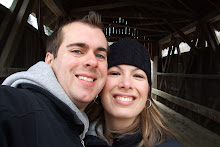 Title: All He Ever Wanted
Title: All He Ever WantedAuthor: Shreve, Anita
Publication Date: 2003
Number of Pages: 352
Genre: Women's Lives and Relationships, Literary Fiction
Geographical Setting: New England
Genre: Women's Lives and Relationships, Literary Fiction
Geographical Setting: New England
Time Period: Late 1800's
Plot Summary: Nicholas Van Tassel is an educated, upstanding citizen. A professor at a small New England school, he meets Etna Bliss during a flurried escape from a burning hotel where they are both dining. Etna is the niece of Van Tassel's colleague, and through that connection he seeks to court her. Etna, both reserved and emotionally withdrawn, eventually allows herself to be courted and finally married by Van Tassel, who sees her as the ultimate love of his life. It is Nicholas' obsession with Etna that propels him forward in the relationship, even though he is aware that she does not return his amorous emotions. As years pass, Etna fails to reciprocate Nicholas' love, though she does bear him two children. Through a series of revealing meetings and letters, Etna's past and silent, passionate longings are unearthed, leading the novel to its unsettling close. Shreve's use of language reminds readers of the time period in which the book is set, with many eloquent descriptions and conversations. Readers may also enjoy the male viewpoint of the novel, as well as the many examples of correspondence between characters which give particular interest to the latter half of the book.
For Your Consideration: What brings a woman to marry a man for less than love? It is understandable that at the time period in which this book is set that women needed to marry for status, security, and necessity. It is very hard for me to understand a time when love was not the sole reason for entering into a marriage. And yet, that is a main focal point of this book. Nicholas was so bent on having Etna, that he didn't even care whether she felt the same way. It was enough for him to have her. But what about Etna? Was it really the best thing for Etna? Nicholas struck me as selfish and self-centered for this reason. By marrying Etna, he got to have the woman he so desired, the status that marriage brought him, the house, the children, and continue on with his teaching career. And the question remains: what about Etna? Was she wrong to want time away from the life to which she had more or less resigned herself? Was she so horrible for having a secret place to spend a few hours, to escape it? I think it is very difficult to answer these questions coming from a modern viewpoint. As a woman today, I would criticize Etna on her inability to communicate with her husband - even if he isn't the man that she truly loves. Perhaps if Etna had told her husband about the house, and her need for space, things would have turned out very differently. Any thoughts?

